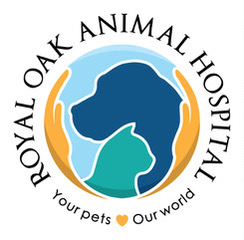Library
-
Sulfamethoxazole/trimethoprim is given by mouth in the form of a liquid suspension or is given by injection in the hospital, and it is commonly used to treat bacterial and parasitic infections, sometimes off label, in dogs, cats, small mammals, and other exotics. Common side effects include a decreased appetite, vomiting, and diarrhea, although more serious side effects are possible such as dry eye, or liver, blood, or urinary problems. Do not use in pets that have severe liver damage, blood cell problems, dehydration, or sulfa allergies. If a negative reaction occurs, please call your veterinary office.
-
Sulfasalazine is given by mouth and is used off label to treat inflammatory large bowel disease and vasculitis. Give as directed by your veterinarian. Side effects include dry eye, decreased appetite, vomiting, yellowing of the skin, eyes, or body fluids. Do not use in pets that are allergic to it or other sulfonamides or salicylates, or in Doberman Pinschers, Miniature Schnauzers, or Samoyeds, or in pets with dry eye/KCS, intestinal or urinary blockages, or severe dehydration. If a negative reaction occurs, please call your veterinary office.
-
Tetracycline is given by mouth and is used off label to treat bacterial infections and inflammatory skin conditions in many animal species. The most common side effects include nausea, vomiting, diarrhea, and lack of appetite. Do not use in pets that are allergic to it or other tetracycline antibiotics, or in pregnant animals, especially in the first half of pregnancy. If a negative reaction occurs, please call your veterinary office.
-
Complete and accurate medical records are like a medical diary for your pet. The ability to review your pet’s medical history before the first appointment will allow your new veterinarian to provide exceptional care that is tailored and timely. You can request that your previous veterinary clinic send your pet's records to your new veterinarian.
-
Therapeutic laser is the application of light energy to areas of the body to stimulate healing. This light–tissue interaction is called photobiomodulation. In the past, therapeutic laser was often referred to as low-level or cold laser (as opposed to a surgical or hot laser).
-
Therapy pets can help people with many facets of their health including physical, emotional, and psychological well-being. These pets live with their owners and make visits to hospitals and other facilities to spend time with these human patients. Therapy pets are not the same as service animals.
-
**This article has been specifically written for pet sitters and how they can reduce their exposure to COVID-19.** COVID-19 is a new respiratory disease in humans, initially discovered late in 2019. Although all coronaviruses are related, they are not all the same virus. As a pet sitter, it is important to limit direct contact with your clients. People can shed the virus without showing any symptoms of disease, so it is important to practice social distancing even with clients who appear healthy. It is also important to limit your contact with potentially contaminated items in your clients’ homes, whether they are at home or not. The most important things you can do to minimize your risk of infection, and minimize the risk of transferring infection to your clients, is to be cautious when interacting with clients and when touching anything that could be contaminated. Communicate with your clients regularly during this pandemic. Having information about your clients’ health can help you avoid taking unnecessary risks. Finally, if you develop any signs of COVID-19, including cough, fever, and/or shortness of breath, it is important that you stay home from work.
-
Tramadol is a synthetic opioid given by mouth in the form of a tablet, capsule, or compounded liquid, and is used off label to treat pain. Common side effects include sedation, gastrointestinal upset, or agitation. It should not be used in pets that are hypersensitive to opioids, and should be used cautiously in geriatric, sick, or pets with seizures. If a negative reaction occurs, call your veterinary office.
-
Triamcinolone acetonide topical (brand names Genesis®, Vetalog®, others) is a corticosteroid used to treat itching, skin irritation, and rashes in dogs. It may be specially compounded and/or combined into a formulation with other medications. It is used off label in other species. Triamcinolone topical comes in cream and spray forms.
-
Triple antibiotic ophthalmic ointment, also known as neomycin and polymyxin B with bacitracin or gramicidin (brand names Neosporin Ophthalmic Ointment, Neo-Polycin Ophthalmic Ointment, Trioptic-P, Vetropolycin), is a combination antimicrobial medication used to treat certain types of bacteria (gram-positive and gram-negative). It is used to treat eye infections, eyelid infections, and infections of the tissue surrounding the eye (conjunctiva). Caution when using this medication in cats as allergic reactions have been reported.


